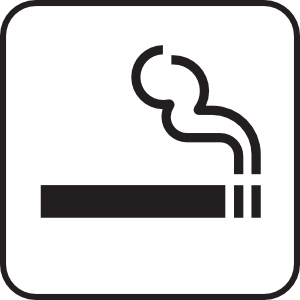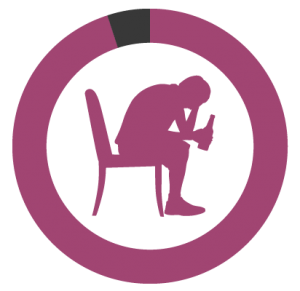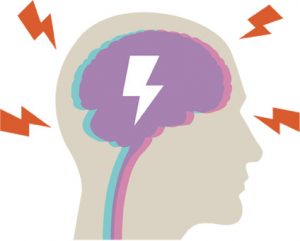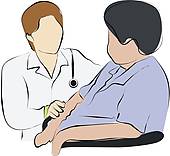Do I Have to Stop Drinking Forever ? Can Alcoholics Ever Drink Socially? — Talk Sober at YouTube.com
Disclaimer: Marcus is NOT a doctor or a trained addiction counselor. The information in these videos is provided as a resource only, and is not to be used or relied on for any diagnostic or treatment purposes. Nor is it to be used as a substitute when professional diagnosis and treatment is needed. Please seek professional help when needed. Alcoholism is serious… DON’T mess around! Visit www.TalkSober.com/help or get professional help.
“What do you mean, I can never drink again for the rest of my whole life? Are you kidding me?”
When people try to get sober, one major problem they face is the thought of not being able to drink again for the rest of their life. Today, we’re going to answer these questions:
“Can I ever drink again? “
“Maybe just a sip?”
“What about at my daughter’s wedding or a graduation or a party?”
“Am I locked out of drinking forever?”
About six months ago, my dad was diagnosed with Stage 3 throat cancer. The doctor said it had nothing to do with  smoking, but it was a good idea to quit anyway. So just like, after smoking for 50 years, my dad just gave up smoking.
smoking, but it was a good idea to quit anyway. So just like, after smoking for 50 years, my dad just gave up smoking.
Now, we come from a long line of smokers in my family. My grandmother, my grandfather, everyone chewed or smoked tobacco in some sort of way. It wasn’t an easy thing for my dad to give up. But when he was faced with the thought that he might die, it was gone in an instant.
So the question is, why do we treat alcohol any different?
For many of you reading this, alcohol could be deadly. This could be your last shot to get sober. You see, alcohol causes a lot of deaths. But for some reason, mainstream culture and our society does not embrace alcoholism as a true, functioning disorder or disease.
When someone has cancer and asks what they need to do, the doctor says, “If you don’t stop smoking, this cancer’s going to grow and get worse.” Instantly, the person is able to quit. They don’t ask themselves, “Will I be able to quit the rest of my life? Am I going to be able to do this?” That stuff doesn’t plague their mind.
However, with an alcoholic, it’s a little bit different. Alcohol takes over your brain. It tells you things that you don’t normally think on your own. It hijacks your ability to make rational decisions, such as this one right now: the fact that you’re worried about not being able to drink for the rest of your life—that says that alcohol has a grip on your brain.
Now, you want to look at this objectively. I’m not saying you have to make a decision right now. You don’t need to decide the rest of our life right now. You just need to look at what’s going on.
 I’d like you to take a look at your life. Picture the way your life is right now, drinking as much as you’re drinking, dealing with the things that you’re dealing with. Look at all the guilt, all the shame, all the missed income, all the missed opportunity. The family with their issues about your drinking, your mental well-being, the way that your health is deteriorating. Whatever it is that’s going on with your drinking, I want you to hold that in your mind right now.
I’d like you to take a look at your life. Picture the way your life is right now, drinking as much as you’re drinking, dealing with the things that you’re dealing with. Look at all the guilt, all the shame, all the missed income, all the missed opportunity. The family with their issues about your drinking, your mental well-being, the way that your health is deteriorating. Whatever it is that’s going on with your drinking, I want you to hold that in your mind right now.
And then, on the other side of your mind, I want you to picture the drink that you crave. Picture that and say to yourself, “Look at what this drink is doing to me. Look at how it’s affecting my life. Look at all the negative consequences.” After all, the definition of alcoholism involves continuing to drink despite negative consequences.
I started trying to get sober in 2012. That year, I had a big wake up call. I was over at a convention in Vegas. We used to do these small business conventions, where we’d have about 20 people there. I was doing this convention, and I got really drunk, and I had a pretty nasty fall. I thought, “Wow, something’s going on. Why can’t I control my drinking?” So I decided to think about it more.
It was around October of 2012 when I decided to get sober. I asked myself, “Can I moderate? Or do I have to abstain completely?” To me, the idea of abstaining was just out of the question. I thought, “I’m 30-something years old. How am I going to decide the rest of my life right now? I don’t know what the rest of my life is going to bring.” This was a big deal for me. But I thought I was able to do it.
However, I was not able to see that the alcohol was hijacking my brain. Every time I took a drink, it gave me a pleasant experience of being able to escape the crappy life that I created–the thoughts, the bad things that I wanted to get away from. Alcohol allowed me to get away from them. It had become my medicine. I thought, “How do I take that out of my life forever? What if I need it?”
This is what chemical dependency is all about. You believe that you are dependent on this chemical for your very life, and you very well might be. That’s why we always tell you that if you’re going to detox, do it at a doctor’s office or a hospital.
But here I was in 2012, and I was saying, “Well, do I need to quit the rest of my life?” The guys over at AA and all these other people were saying, “Hey, just put your drink down. Just don’t drink the rest of your life.”
And so I went through this for a while. Over about a year and a half, I was going back and forth between, “Can I make the decision to not drink the rest of my life? Can I stay sober? Can I moderate? Do I have to be like the guys who think beer is the devil? Or can I figure out a different way?”
Then, in June 2014 is when I finally did get sober. And from that time, here’s what I’d like to say to you.
 Your brain is being clouded right now by alcohol. It’s being tainted. Your thoughts are tweaked so that you can’t make a rational decision. Do you need proof? Every time you drink, it’s an irrational decision. You know what’s going to happen, where it’s going to lead you. You prove this over and over again.
Your brain is being clouded right now by alcohol. It’s being tainted. Your thoughts are tweaked so that you can’t make a rational decision. Do you need proof? Every time you drink, it’s an irrational decision. You know what’s going to happen, where it’s going to lead you. You prove this over and over again.
You think to yourself, “I’m only going to have three this time,” or, “I’m just going to drink at dinner time,” or, “I’m not going to drink in the morning.” All the while, you don’t want to make a definite decision to give up alcohol for the rest of your life because, what if?
But right now, you are jeopardizing your very life, your very emotional stability, your mental stability, your health, and everything that alcohol is diminishing. You are jeopardizing that over one drink, two drinks, maybe a drink down the road. This is stopping you from getting clean and sober.
It stopped me for a year and a half, and those were some of the worst days of my life, mentally. I was dragged through the pits of Hell in my brain, dealing with this stuff.
Back then, I wish someone had come along and said, “Look, here’s what’s going on. You’re sitting here and you’re not getting sober because you’re worried about being able to drink again one day. This is your big worry. Butyou don’t need to make a decision right now. What you need to do right now is focus on getting your mind clean.”
You need to be able to make a decision with a healthy mind, because right now, your mind is tainted and warped by alcohol. Maybe it’s been 10 years, 12 years, 15, maybe almost 20 years. Whatever it is, realize that you’re not thinking with a rational brain.
We have these stigmas, these ideas in our brain that are stopping us from getting sober. Is the idea of saying, “I’m an alcoholic. I can never drink again,” stopping you from getting sober? Well, here’s something you can do instead.

I’d like you first to go to a doctor and find out how much havoc the alcohol has wreaked on your mind and your body. Go to the doctor, tell them what’s going on, and see if you need to detox.
After you detox under medical supervision, give yourself 90 days. We’re not talking about deciding the rest of your life. Some people do return to drinking safely. Not me, but some people do. I choose to abstain completely. Give yourself 90 days. Start to get your mind clear.
On my website, check out the videos we have for you. On my Youtube channel, subscribe and check out those videos too.
At the end of 90 days, evaluate where you’re at. Ask yourself how you’re feeling, how you’re thinking, and if things have changed. 90 days is enough to start getting your brain back on track. It takes more life a year and a half to two years to heal your brain completely, but at the end of 90 days, you’ll be able to think a little bit clearer. You’ll see the crap that alcohol has caused in your life, and you’ll realize you need to do something about it.
Then, give yourself another 90 days. Tell yourself this: “If I am not an alcoholic, if I am not dependent on alcohol, I should be able to go a year without drinking.” The fact that you are worried about giving up alcohol for any length of time, to me, means that you have an alcoholic brain. You are dependent. You cannot give it up on your own. You need some help.
Start with baby steps. That’s why a lot of recovery literature says, “Take it a day at a time. Take it an hour at a time. Take it a minute at a time.” Take it slowly. Don’t commit to anything. Just say, “This is what I’m going to do,” and make a goal to get yourself healthy, to get your brain working again before you make any major decisions.
Go over to TalkSober.com/help. We have some tools for you to help you get and stay sober. Don’t hinge the rest of your life on one thought of being able to drink again. Get yourself clear, get the alcohol out of your brain, think clearly, then make a decision that’s going to work for you.
